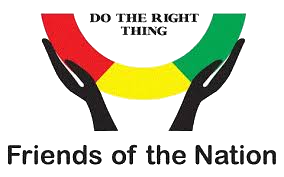Ghana Methane Advocacy
The advocacy is for the protection of community and land rights in the development of the Ghana-Sringabo (Cote De Ivoire) gas pipeline and to strengthen Ghana’s methane emission policy in the wake of the climate crisis. This advocacy will conduct a community mapping and training on community rights, laws and project impacts, facilitate coordinated advocacy with Ghana EITI on methane emission policy strengthening, as a ‘door-opening’ exercise for other engagements, and undertake dialogues with Ghana Gas Company Limited and the Environmental Protection Agency (EPA) on community concerns. There will also be a gender-based climate impact assessment of the gas project, and dialogues with EPA and Ghana Gas Company to acknowledge and incorporate findings from the assessment and publicize report findings as appropriate.
Background
Today, the adoption and use of cleaner fuels and technologies are by far the most promising means to stem climate change. The bedrock of this framing is that for years human activities have menaced the environment and disrupted fauna and flora; threatened livelihoods and health of women and children and continue to be a danger to human survival overall.
Faced with this reality many fossils fuel-dependent economies the world over are devising ways to evacuate the huge reserves of fossil fuels like natural gas, seen by many industry players as a much less carbon-heavy transition fuel. They hope to deal with significant energy challenges and to uplift their people out of precarious economic hardships recently worsened by the Covid-19 pandemic. Like many other African countries gas still presents a huge opportunity to drive investment and grow the regional markets. This has necessitated plans to build infrastructure to export this resource. But exporting gas comes with it many notable human rights, livelihoods, environmental and climate threats.
Running for 35 kilometers, the Sringabo project in Ghana will transport as much as 500MMscf/d of natural gas from Ghana to Cote D’Ivoire. This is an economically well-intentioned project to sell indigenous gas mainly to export for net economic gains, but it has potential climate and human rights risks. The twenty-nine (29) communities (like Kengen, Atuabo, Eloyin, etc.) along the pipeline are mainly fisherfolk and farmers run the risk of losing their livelihoods. Local climate toxicity from gas valves and fugitive methane emissions in dissolved forms could have dire livelihood implications for fish stock and health implications on the communities.
Initial Environmental Impact Assessments (EIAs) conducted so far happened under public gathering restrictions imposed because of Covid-19 pandemic and has been of concern. It focused on only community leaders and did not assess the differentiated interests in land. For example, while some allodial title owners were consulted, there is no indication of consultation of usufructs, leaseholders or those with fiduciary interests in land who will be affected by the pipeline. This creates a void in the consultation processes and comes with significant risks of conflict. An even more problematic issue is because acceptable standards of confidentiality and anonymity in grievance handlings are not guaranteed in the current petroleum sector laws. Also evident are the unequal power relations that exist between poor communities and powerful companies in respect to compensation and resettlement that is not addressed by the sector laws and is problematic.
